
Many seabirds follow boats and ships. Some, such as sooty albatrosses, do so for the free lift generated as the wind rises over the vessel. Others do so to improve their chances of finding food. Boobies rely on vessels to flush flying fish or flying squid, whereas storm petrels patter over the wake, searching for zooplankton stirred up to the water surface. But many birds follow in the hope of obtaining food directly from the vessel, either discarded meal scraps or food made available by vessels exploiting marine resources.
Albatrosses, petrels, gulls, gannets, skuas, frigatebirds and even terns often follow fishing boats because they have come to associate these vessels with an easy meal. The numbers of birds vary in relation to food availability. Birders on pelagic trips off the Cape Peninsula know that long-liners processing their catch attract a small but steady stream of seabirds, whereas the numbers of birds attending trawlers peak as the net reaches the surface. This is evidently a learned behaviour because many of the birds only start to mill around the stern of the vessel once the trawl doors are hauled aboard, shortly before the net surfaces.
This story is from the March 2023 edition of African Birdlife.
Start your 7-day Magzter GOLD free trial to access thousands of curated premium stories, and 9,000+ magazines and newspapers.
Already a subscriber ? Sign In
This story is from the March 2023 edition of African Birdlife.
Start your 7-day Magzter GOLD free trial to access thousands of curated premium stories, and 9,000+ magazines and newspapers.
Already a subscriber? Sign In

EXPLORING NEW HORIZONS
Keith Barnes, co-author of the new Field Guide to Birds of Greater Southern Africa, chats about the long-neglected birding regions just north of the Kunene and Zambezi, getting back to watching birds and the vulture that changed his life.

footloose IN FYNBOS
The Walker Bay Diversity Trail is a leisurely hike with a multitude of flowers, feathers and flavours along the way.
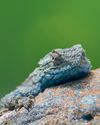
Living forwards
How photographing birds helps me face adversity
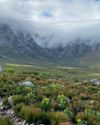
CAPE crusade
The Cape Bird Club/City of Cape Town Birding Big Year Challenge
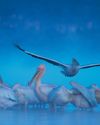
water & WINGS
WATER IS LIFE. As wildlife photographer Greg du Toit knows better than most.
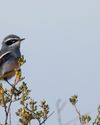
winter wanderer
as summer becomes a memory in the south, the skies are a little quieter as the migrants have returned to the warming north. But one bird endemic to the southern African region takes its own little winter journey.
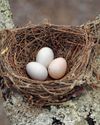
when perfect isn't enough
Egg signatures and forgeries in the cuckoo-drongo arms race

Southern SIGHTINGS
The late summer period naturally started quietening down after the midsummer excitement, but there were still some classy rarities on offer for birders all over the subregion. As always, none of the records included here have been adjudicated by any of the subregion's Rarities Committees.

flood impact on wetland birds
One of the features of a warming planet is increasingly erratic rainfall; years of drought followed by devastating floods. Fortunately, many waterbirds are pre-adapted to cope with such extremes, especially in southern Africa where they have evolved to exploit episodic rainfall events in semi-arid and arid regions. But how do waterbirds respond to floods in areas where rainfall - and access to water - is more predictable? Peter Ryan explores the consequences of recent floods on the birds of the Western Cape's Olifants River valley.
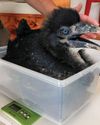
a star is born
It’s every producer’s dream to plan a wildlife television series and pick the right characters before filming.